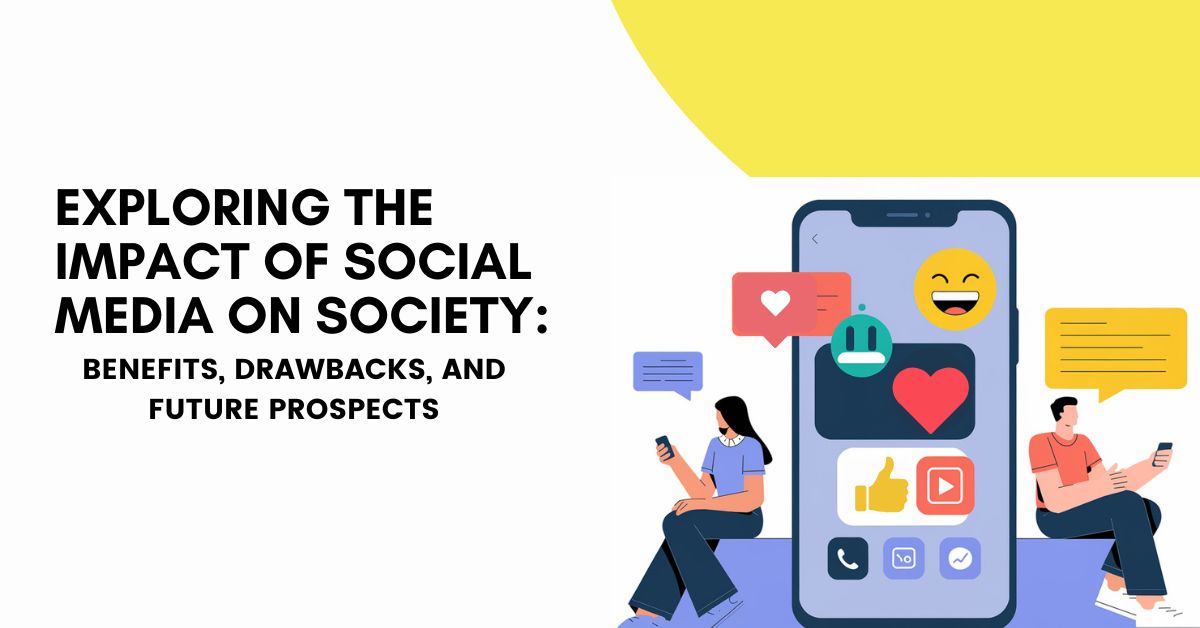How Has Social Media Impacted Society
The question of how social media has impacted society is more relevant today than it has ever been. Social media platforms are not only reshaping the way we communicate but also influencing various facets of life, from economic opportunities to cultural phenomena. In this blog post, we will delve into the depth of how social media has irreversibly transformed society. We’ll explore both its revolutionary contributions and the critical challenges it presents, examining its role in culture, mental health, privacy, and beyond. Keep reading to discover the multi-faceted impact of social media on our everyday lives.
The Evolution of Social Media
History and Growth
Social media as we know it began its journey in the late 1990s and early 2000s, with platforms such as Six Degrees and Friendster setting the stage. However, it was the introduction of MySpace and later Facebook that truly marked the dawn of a new era for digital interaction. These platforms revolutionized how people connect, providing a space for users to build profiles, create networks, and share experiences across vast distances.
As technology advanced and internet accessibility increased, so too did the reach and sophistication of social media. The growth trajectory has been exponential, with today’s platforms amassing billions of active users globally. Social media’s landscape has become incredibly diverse, including giants like Twitter, Instagram, and TikTok, each bringing unique features and user experiences that cater to different demographic preferences.
Current Landscape
Fast forward to the present, and the social media ecosystem is a bustling metropolis of digital interaction. Platforms like Facebook boast over 2 billion monthly users, while Instagram and TikTok have captured the hearts of younger demographics with their visually driven content. LinkedIn has cornered the professional networking space, and Pinterest thrives on ideas sharing and inspiration.
The current landscape is characterized by increased competition and specialization among platforms. Social media has become a central hub for not only personal communication but also business networking, marketing, and commerce. Algorithms power content curation, ensuring that users are continuously engaged by content tailored to their preferences and habits.
Positive Impacts of Social Media on Society
Enhanced Communication
One of the most celebrated facets of social media’s impact is its ability to enhance communication. Before the advent of these platforms, long-distance communication relied heavily on emails or phone calls, which lacked the interactivity and immediacy that social media offers. Through platforms like WhatsApp, Facebook Messenger, and Snapchat, users can exchange messages instantly, share multimedia, and even make video calls, fostering more interactive communication experiences.
Social media has also facilitated global connectivity, allowing individuals to maintain relationships irrespective of geographical barriers. Cultural exchanges that were once limited by physical borders can now occur seamlessly online, leading to deeper intercultural understanding and empathy.
Access to Information
Another significant impact of social media is its role in democratizing access to information. Platforms such as Twitter and Facebook have become crucial in breaking news, often providing real-time updates faster than traditional news outlets. This accessibility empowers users to be more informed about global and local events, enabling them to participate more actively in societal discourse.
Beyond news, social media serves as a repository for educational content. Platforms like YouTube and LinkedIn Learning provide access to tutorials and courses, helping individuals acquire new skills without needing formal education. This shift not only facilitates lifelong learning but also broadens opportunities for personal and professional development.
Social Movements and Awareness
Social media has been pivotal in amplifying social movements and raising awareness about critical issues. Hashtags like #BlackLivesMatter, #MeToo, and #ClimateChange have galvanized global movements, bringing attention to injustice and environmental concerns. The viral nature of social media allows messages to spread rapidly, fostering a sense of solidarity and collective action.
This amplification has led to tangible social change, influencing public policy and corporate behavior. It is not just about awareness but about mobilizing communities on a global scale, providing a platform for underrepresented voices and democratizing advocacy.
Economic Opportunities
The rise of social media has opened up a plethora of economic opportunities. Platforms like Instagram and Pinterest have introduced new retail landscapes where businesses can reach potential customers easily through targeted advertising. Small businesses and startups benefit particularly from the ability to market their products to a global audience without the need for significant upfront investment.
Freelancers and creatives have also harnessed social media to showcase their skills and connect with clients. Platforms such as LinkedIn provide a professional space where individuals can build networks, seek employment, and explore collaboration opportunities. Social media has effectively leveled the playing field, making it easier for entrepreneurs to enter the market and succeed.
Negative Impacts of Social Media on Society
Mental Health Concerns
Despite its numerous benefits, the impact of social media on mental health is a topic of growing concern. The use of these platforms is closely linked to anxiety, depression, and addiction, particularly among younger demographics. The constant exposure to curated lifestyles can lead to feelings of inadequacy and low self-esteem as users compare themselves to seemingly perfect online personas.
Additionally, the addictive nature of social media, driven by algorithms designed to maximize engagement, can result in excessive screen time, detracting from real-world interactions and experiences. This consumption pattern can exacerbate feelings of loneliness and isolation, impacting overall well-being.
Privacy Issues
In an era where personal data is a currency, social media platforms have been scrutinized for their privacy practices. Concerns over data breaches and the unauthorized use of personal information for advertisement targeting have sparked debates about user privacy and the ethical responsibilities of social media companies.
The extent of data collection raises questions about how much control users truly have over their personal information and who owns the data being generated. This lack of transparency can erode trust between users and platforms, prompting calls for stricter regulation and data protection measures.
Misinformation and Fake News
Social media’s democratization of information has had an unintended consequence: the rapid spread of misinformation and fake news. Viral rumors and false narratives can reach millions within a matter of hours, influencing public opinion and, in some cases, leading to real-world harm.
This spread of misinformation is further complicated by echo chambers, where algorithms reinforce existing beliefs by curating similar content, thus preventing exposure to diverse perspectives. Addressing this challenge requires a collective effort from platforms, policymakers, and users to prioritize factual accuracy and critical thinking.
Cyberbullying and Online Harassment
The anonymity afforded by social media can sometimes power negative behaviors, including cyberbullying and online harassment. The impact of these interactions can be devastating, affecting individuals’ mental health and sense of security.
Social media companies face the significant challenge of moderating content effectively while preserving freedom of expression. Implementing robust reporting mechanisms and promoting anti-bullying initiatives are essential steps toward creating safer online environments.
Social Media’s Role in Shaping Culture
Influence on Popular Culture
Social media has become a melting pot for pop culture, with trends and memes often originating and spreading through these platforms. Influencers and content creators have gained celebrity status, wielding significant sway over consumer behavior and societal norms.
Platforms like TikTok have turned ordinary individuals into global sensations overnight, democratizing fame and giving rise to new forms of entertainment. This shift has altered the landscape of celebrity culture, challenging traditional media channels and redefining what it means to be influential.
Cultural Exchange
The impact of social media on cultural exchange cannot be overstated. It provides a platform for the sharing of traditions, ideas, and languages, fostering cross-cultural dialogue and mutual understanding. Users have unprecedented access to different cultures, allowing them to learn about and appreciate diversity in ways that were not possible before.
Through social media, culinary experiences, artistic expressions, and ritual practices can be shared beyond their geographical confines, enriching global culture and promoting inclusivity.
Future Prospects of Social Media in Society
Emerging Technologies
The future of social media is poised to be shaped by emerging technologies such as artificial intelligence (AI) and virtual reality (VR). AI is already being used to refine content curation and enhance user experiences, but its potential extends to creating more personalized and engaging interactions.
Virtual and augmented reality promise to transform social media into immersive experiences, allowing users to interact with digital environments in ways previously unimaginable. These technologies could revolutionize social media marketing, education, and even social interaction itself.
Regulatory Trends and Challenges
As social media continues to influence society, regulatory scrutiny intensifies. Governments worldwide are grappling with how to address issues such as privacy, misinformation, and market dominance while respecting freedom of expression.
Future regulatory trends may focus on data protection, transparency in content moderation, and accountability for harmful content. Striking the right balance between innovation and regulation will be crucial in addressing challenges and maximizing social media’s positive impact on society.
Conclusion
Social media’s impact on society is both vast and complex, with its influences felt in nearly every aspect of modern life. It has revolutionized communication, democratized information, and provided platforms for social movements and economic opportunities. However, it also presents significant challenges in terms of mental health, privacy, misinformation, and cyberbullying.
As society navigates this digital age, it’s essential to remain mindful of how we interact with these platforms, acknowledging both their potential and pitfalls. By staying informed and engaging responsibly, we can harness social media’s benefits while mitigating its adverse effects.
We invite you to share your thoughts on how social media has impacted your life. Please leave a comment below or follow our blog for more insights into digital trends and their societal impacts. Let’s foster a community that discusses the evolving role of social media in today’s world.







